User:BubzieBobkat/List of semantic universes: Difference between revisions
BubzieBobkat (talk | contribs) |
BubzieBobkat (talk | contribs) No edit summary |
||
| (10 intermediate revisions by the same user not shown) | |||
| Line 1: | Line 1: | ||
The following is a list of series that are technically represented in ''Super Smash Bros.'', but either have a questionable standing as being their own franchise, represented in too minor or | The following is a list of series that are technically represented in ''Super Smash Bros.'', but either have a questionable standing as being their own franchise, represented in too minor, indirect, or speculative a way to even be considered dependant, in some way has the potential to be a coincidence, or all of the above. See the minor third-party universes article for dependant universes, which are omitted here. I will set up solid rules at some point, as there are some entries I think are ''too'' pedantic even for this whole concept. Refrain from adding or removing entries until those rules are set up, at that point I will welcome them. Until now, you can put new discoveries in discussion, and edit entries' info. | ||
==Questionable individuality== | ==Questionable individuality== | ||
===''Captain Toad''=== | ===''Captain Toad''=== | ||
Music | Music | ||
===''Dr. Mario''=== | ===''Dr. Mario''=== | ||
{{Infobox Series | {{Infobox Series | ||
| Line 14: | Line 12: | ||
|genres = Puzzle | |genres = Puzzle | ||
|originconsole = Game Boy<br>NES | |originconsole = Game Boy<br>NES | ||
|firstinstallment = ''Dr. Mario'' (1990) | |firstinstallment = ''{{s|wikipedia|Dr. Mario}}'' (1990) | ||
}} | }} | ||
'''''Dr. Mario''''' is a puzzle game series featuring {{uv|Mario}} characters (and, in ''64'', characters from ''Wario Land 3''), in which the player must connect pills of the same color to eliminate viruses. | '''''Dr. Mario''''' is a puzzle game series featuring {{uv|Mario}} characters (and, in ''64'', characters from ''Wario Land 3''), in which the player must connect pills of the same color to eliminate viruses. | ||
[[Dr. Mario]] has been featured as a playable character in all ''Super Smash Bros.'' games except for ''Brawl'' and ''64'', the prior still featuring him as a sticker and introducing new ''Dr. Mario'' music tracks, and the latter mentioning him in passing in Mario's description. Dr. Mario appears to have been planned for inclusion in ''Brawl''. | [[Dr. Mario]] has been featured as a playable character in all ''Super Smash Bros.'' games except for ''Brawl'' and ''64'', the prior still featuring him as a sticker and introducing new ''Dr. Mario'' music tracks, and the latter mentioning him in passing in Mario's description. Dr. Mario appears to have been planned for inclusion in ''Brawl''. | ||
{{clr}}} | {{clr}} | ||
===''Hyrule Warriors''=== | |||
{{clr}} | |||
===''Luigi's Mansion''=== | ===''Luigi's Mansion''=== | ||
===''Mario Kart''=== | |||
{{Infobox Series | |||
|title = Mario Kart (universe) | |||
|image = {{external image|https://upload.wikimedia.org/wikipedia/commons/c/c1/Mario_Kart_logo.png|250px}} | |||
|developer = Nintendo<br>Intelligent Systems<br>Retro Studios<br>Velan Studios<br>DeNa<br>Namco<br>Bandai Namco | |||
|publisher = Nintendo<br>Namco<br>Bandai Namco | |||
|genres = Racing<br>Vehicular combat<br>Augmented reality | |||
|originconsole = SNES | |||
|firstinstallment = ''{{s|wikipedia|Super Mario Kart}}'' (1992) | |||
}} | |||
'''''Mario Kart''''' is a sub-series of the {{uv|Mario}} franchise in which multiple characters from within the series participate in races, using items to gain a lead. Although the series began as a low-budget spin-off, it eventually propelled into a popularity and merchandising presence so high that one could argue it to be the real ''Mario'' "main series" and not the platformers. | |||
Despite not having a unique world or cast of its own, the ''Super Smash Bros.'' franchise designates ''Mario Kart'' as its own franchise seperate from the rest of ''Mario'', albeit without its own series symbol. The [[Figure-8 Circuit]], [[Rainbow Road]], and [[Mario Circuit]] stages; the [[Banana Peel]] item and move; the [[Clown Kart Dash]] move; the [[Spiny Shell]] and [[Lightning Bolt]] items; the functionality of the [[Bullet Bill]] item; and the trophy and/or Spirit characters Toadette, Baby Daisy, Baby Rosalina, and Pink Gold Peach all originate from this series, among many other smaller pieces of content. | |||
{{clr}} | |||
===Nintendo eShop=== | |||
{{Infobox Series | |||
|title = Nintendo eShop (universe) | |||
|image = {{external image|https://upload.wikimedia.org/wikipedia/commons/e/e9/Nintendo_eShop_logo.png|250px}} | |||
|developer = Nintendo | |||
|publisher = Nintendo | |||
|genres = Utility | |||
|originconsole = Wii | |||
|firstinstallment = {{s|wikipedia|Wii Shop Channel}} (2006) | |||
}} | |||
'''Nintendo eShop''' refers to digital storefronts owned by ''Nintendo'', used for purchasing digital games, introduced as a platform for vintage and smaller games, but over time branching out to provide full retail releases in a non-physical format. | |||
The Wii Shop Channel theme is featured as a song in ''Brawl'' and ''Ultimate''. A remix of said song was added in ''for Wii U'' and remains in ''Ultimate''. | |||
{{clr}} | |||
===''Pikachu''=== | ===''Pikachu''=== | ||
{{Infobox Series | {{Infobox Series | ||
| Line 31: | Line 59: | ||
|firstinstallment = {{s|wikipedia|Pokémon Pikachu}} (1998) | |firstinstallment = {{s|wikipedia|Pokémon Pikachu}} (1998) | ||
}} | }} | ||
'''''Pikachu''''' is a series of spin-off games starring the {{uv|Pokémon}} franchise mascot [[Pikachu]], itself made up of the subseries '''Pokémon Pikachu''', '''''Detective Pikachu''''', '''''PokéPark''''', and '''''Hey You, Pikachu!''''', with some | '''''Pikachu''''' is a series of spin-off games starring the {{uv|Pokémon}} franchise mascot [[Pikachu]], itself made up of the subseries '''Pokémon Pikachu''', '''''Detective Pikachu''''', '''''PokéPark''''', and '''''Hey You, Pikachu!''''', with some ambigious entries in the form of a single game starring [[Pichu]] and multiple special edition mainline Pokémon games with Pikachu in the place of a legendary or starter on the box. | ||
Detective Pikachu appears as a Spirit in Ultimate. | Detective Pikachu appears as a Spirit in Ultimate. Partner Pikachu from ''Pokémon: Let's Go, Pikachu!'' also appears, though that game's placement in the ''Pikachu'' franchise is dubious. | ||
{{clr}} | {{clr}} | ||
===''Pokémon'' (anime)=== | ===''Pokémon'' (anime)=== | ||
| Line 54: | Line 82: | ||
{{Infobox Series | {{Infobox Series | ||
|title = Pyoro (universe) | |title = Pyoro (universe) | ||
|image = {{external image|https://static.wikia.nocookie.net/ | |image = {{external image|https://static.wikia.nocookie.net/siivagunner/images/9/94/Pyoro.jpg|250px}} | ||
|developer = Nintendo<br>Intelligent Systems | |developer = Nintendo<br>Intelligent Systems | ||
|publisher = Nintendo | |publisher = Nintendo | ||
| Line 61: | Line 89: | ||
|firstinstallment = ''Pyoro'' and ''Pyoro 2'' (2003, as part of ''{{s|wikipedia|WarioWare, Inc: Mega Microgame$!}}''; 2008, as an individual product) | |firstinstallment = ''Pyoro'' and ''Pyoro 2'' (2003, as part of ''{{s|wikipedia|WarioWare, Inc: Mega Microgame$!}}''; 2008, as an individual product) | ||
}} | }} | ||
'''''Pyoro''''' is a fictional series of video games playable within the {{uv|WarioWare}} series of games, starring and presumably developed by a long-tongued small red bird of the same name (a parody of the Japanese chocolate mascot Kyorochan) depicted as both [[Wario]]'s greatest competitor and admirerer, with minigames from the character's gamography being playable in almost every ''WarioWare'' game. In 2008, the first two ''Pyoro'' games featured in ''Mega Microgame$!'' were released as an independent downloadable game for Nintendo DSi, under the title ''Bird & Beans'' in the US and retaining the ''Pyoro'' title elsewhere. | '''''Pyoro''''' is a fictional series of video games playable within the {{uv|Wario|WarioWare}} series of games, starring and presumably developed by a long-tongued small red bird of the same name (a parody of the Japanese chocolate mascot Kyorochan) depicted as both [[Wario]]'s greatest competitor and admirerer, with minigames from the character's gamography being playable in almost every ''WarioWare'' game. In 2008, the first two ''Pyoro'' games featured in ''Mega Microgame$!'' were released as an independent downloadable game for Nintendo DSi, under the title ''Bird & Beans'' in the US and retaining the ''Pyoro'' title elsewhere. | ||
Pyoro's artwork as a Spirit in Ultimate is taken from ''Bird & Beans''. Additionally, all other instances of Pyoro representation, such as in a cameo on [[Gamer]], could be considered representation for the ''Pyoro'' series of games depending on how one views the franchise in relation to reality. | Pyoro's artwork as a Spirit in Ultimate is taken from ''Bird & Beans''. Additionally, all other instances of Pyoro representation, such as in a cameo on [[Gamer]], could be considered representation for the ''Pyoro'' series of games depending on how one views the franchise in relation to reality. | ||
{{clr}} | {{clr}} | ||
===Stanley the Bugman=== | ===Stanley the Bugman=== | ||
{{Infobox Series | {{Infobox Series | ||
| Line 91: | Line 120: | ||
'''''Tingle''''' is a self-parodic spin-off of {{uv|The Legend of Zelda}} starring the eccentric and perverse map maker [[Tingle]], featuring a more twisted sense of humor and light satirical commentary on matters such as capitalism and slavery. | '''''Tingle''''' is a self-parodic spin-off of {{uv|The Legend of Zelda}} starring the eccentric and perverse map maker [[Tingle]], featuring a more twisted sense of humor and light satirical commentary on matters such as capitalism and slavery. | ||
Tingle's trophy description in ''Brawl'' describes the plot of ''Freshly-Picked Tingle's Rosy Rupeeland'', and Barkle; Pinkle; and Uncle Rupee are featured as | Tingle's trophy description in ''Brawl'' describes the plot of ''Freshly-Picked Tingle's Rosy Rupeeland'', and Barkle; Pinkle; and Uncle Rupee are featured as stickers. Tingle's Assist Trophy animation features flowers, presumably in reference to the box art of ''Rosy Rupeeland'' which shows Tingle skipping through a meadow, which is retained into ''Smash 4''. Zero content from the Tingle series appears in ''Ultimate'' however, with Tingle's reduced presence only taking from his ''Zelda'' appearances. | ||
{{clr}} | {{clr}} | ||
===''Wario Land''=== | ===''Wario Land''=== | ||
{{Infobox Series | {{Infobox Series | ||
| Line 101: | Line 131: | ||
|genres = Platformer<br>Beat-em-up | |genres = Platformer<br>Beat-em-up | ||
|originconsole = Game Boy | |originconsole = Game Boy | ||
|firstinstallment = ''Wario Land: Super Mario Land 3'' (1994) | |firstinstallment = ''{{s|wikipedia|Wario Land: Super Mario Land 3}}'' (1994) | ||
}} | }} | ||
'''''Wario Land''''' is a series of platformers starring [[Mario]]'s greedy, unkempt "dark" counterpart [[Wario]] on his adventures to acquire great fortune, often committing good deeds by complete accident along the way. | '''''Wario Land''''' is a series of platformers starring [[Mario]]'s greedy, unkempt "dark" counterpart [[Wario]] on his adventures to acquire great fortune, often committing good deeds by complete accident along the way. | ||
| Line 113: | Line 143: | ||
Mii Fighter trailer | Mii Fighter trailer | ||
===''Assault''=== | ===''Assault''=== | ||
Star Fox Assault title trademark | {{Infobox Series | ||
|title = Assault (universe) | |||
|image = {{external image|https://images.timeextension.com/fded9e88cb1d2/assault.large.jpg|250px}} | |||
|developer = Namco | |||
|publisher = Namco<br>Atari | |||
|genres = Shooter | |||
|originconsole = Arcade | |||
|firstinstallment = ''{{s|wikipedia|Assault|1988 video game}}'' (1988) | |||
}} | |||
'''''Assault''''' is a tank shooting game developed by Namco, featuring vehicle designs by ''Gundam'' artist Kunio Okawara. | |||
''Star Fox Assault'', the origin and namesake of [[Orbital Gate Assault]], while not related in any notable way to ''Assault'', was only allowed to use the word "assault" in the title due to the game being developed by Namco, the owners of the "Assault" trademark for video games at the time. | |||
{{clr}} | |||
===''Beatmania''=== | ===''Beatmania''=== | ||
Unused | Unused | ||
| Line 120: | Line 162: | ||
===''Blast Corps''=== | ===''Blast Corps''=== | ||
-Unused | -Unused | ||
===Bozo the Clown=== | |||
Melee name tag | |||
===Blue Oyster Cult=== | ===Blue Oyster Cult=== | ||
Don't Fear the Reaper Reference | Don't Fear the Reaper Reference | ||
===''Conker''=== | |||
Name tag | |||
===''Devil's Third''=== | ===''Devil's Third''=== | ||
- | {{Infobox Series | ||
|title = Devil's Third (universe) | |||
|image = {{external image|https://gamingbolt.com/wp-content/uploads/2010/08/devils_third_logo.jpg|250px}} | |||
|developer = Valhalla Game Studios<br>Nintendo | |||
|publisher = Nintendo<br>Nexon | |||
|genres = Shooter<br>Hack and slash | |||
|originconsole = Wii U | |||
|firstinstallment = ''{{s|wikipedia|Devil's Third}}'' (2015) | |||
}} | |||
'''''Devil's Third''''' is a third-person shooter with a heavy emphasis on online gameplay, revolving around an ex-terrorist named Ivan who is granted probation from Guantanamo Bay to fight his former alligance, the School of Democracy (SOD), only to discover a post-apocalyptic future of his group's creation. The game was never owned by Nintendo, but was initially published by it, and recieved very negative reception in Western shores, but was recieved very well by Japanese audiences. | |||
''Devil's Third'' has an unused Spirit identifier in the files of ''Ultimate''. | |||
{{clr}} | |||
===''Strange Case of Dr Jekyll and Mr Hyde''=== | |||
Melee name tags | |||
===''Euphues: The Anatomy of Wit''=== | |||
All is Hair in Love and War spirit event | |||
===''Godzilla''=== | ===''Godzilla''=== | ||
Referenced in Smash Cards | Referenced in Smash Cards | ||
===Guinness World Records=== | ===Guinness World Records=== | ||
Pac-Man trophy description | Pac-Man trophy description | ||
===Halo=== | ===''Gundam''=== | ||
Samus alt costume | |||
===''Halo''=== | |||
Karate Joe trophy description | Karate Joe trophy description | ||
===Disney's ''Hercules''=== | |||
Sora presentation | |||
===''Jet Force Gemini''=== | ===''Jet Force Gemini''=== | ||
-Unused | -Unused | ||
| Line 140: | Line 206: | ||
|genres = Platformer | |genres = Platformer | ||
|originconsole = Arcade | |originconsole = Arcade | ||
|firstinstallment = ''Joust'' (1982) | |firstinstallment = ''{{s|wikipedia|Joust|video game}}'' (1982) | ||
}} | }} | ||
'''''Joust''''' is a classic arcade game series about knights fighting while piloting flying ostrich steeds. | '''''Joust''''' is a classic arcade game series about knights fighting while piloting flying ostrich steeds. | ||
| Line 146: | Line 212: | ||
{{uv|Balloon Fight}} is heavily inspired by ''Joust'', and some may argue it to be a clone or even bootleg. The [[Balloon Fight]] stage in particular has a very strong resemblance to the game. | {{uv|Balloon Fight}} is heavily inspired by ''Joust'', and some may argue it to be a clone or even bootleg. The [[Balloon Fight]] stage in particular has a very strong resemblance to the game. | ||
{{clr}} | {{clr}} | ||
===''Killer Instinct''=== | |||
Funky Kong theme song origin | |||
===Kuidaore=== | ===Kuidaore=== | ||
Pic of the day mention | Pic of the day mention | ||
===Disney's ''The Little Mermaid''=== | |||
Sora presentation | |||
===''Little Red Riding Hood''=== | |||
All the Better to Hear You With spirit event. | |||
===''Lode Runner''=== | |||
===''The Matrix''=== | ===''The Matrix''=== | ||
DK results screen | DK results screen | ||
=== | ===Mega 64=== | ||
Fils A Mech reference | |||
===''M.U.S.C.L.E.''=== | ===''M.U.S.C.L.E.''=== | ||
-Direct Mention | -Direct Mention | ||
===''The Notebook Trilogy''=== | |||
Lucas and Claus' name origin | |||
===''Oddity''=== | ===''Oddity''=== | ||
{{Infobox Series | {{Infobox Series | ||
| Line 164: | Line 240: | ||
|firstinstallment = ''Oddity'' (currently unreleased, possibly vaporware) | |firstinstallment = ''Oddity'' (currently unreleased, possibly vaporware) | ||
}} | }} | ||
'''''Oddity''''' is an RPG taking place in a suburban setting, heavily inspired by {{uv|EarthBound}}, it was originally intended as a fan game under the name ''Mother 4''. The game has notably had a rocky development cycle, originally planed for Winter | '''''Oddity''''' is an RPG taking place in a suburban setting, heavily inspired by {{uv|EarthBound}}, it was originally intended as a fan game under the name '''''Mother 4'''''. The game has notably had a rocky development cycle, originally planed for Winter 2014, and gaining a strong enough following for its protagonist Travis to be featured in many general ''EarthBound'' and ''Smash'' fan works such as ''Smashified!'', before being delayed indefinitely, to the point where the initial "Winter 2014" deadline has become an in-meme in ''EarthBound'' fandom circles | ||
In the launch version of ''Ultimate'', the Masked Man's Spirit used stolen fan art of the character in the art style of ''Mother 4''. This was shortly patched out. | In the launch version of ''Ultimate'', the Masked Man's Spirit used stolen fan art of the character in the art style of ''Mother 4''. This was shortly patched out. | ||
| Line 185: | Line 261: | ||
{{clr}} | {{clr}} | ||
===''Pong''=== | ===''Pong''=== | ||
Color TV Game is | {{Infobox Series | ||
|title = Pong (universe) | |||
|image = {{external image|https://static.wikia.nocookie.net/logopedia/images/1/1e/Atari_Pong_Console_logo.jpg|250px}} | |||
|developer = Atari<br>Morning Star Multimedia<br>Supersonic Software<br>zGames<br>Chequered Ink | |||
|publisher = Atari<br>Namco<br>Kee Games<br>Hasbro Interactive<br>MacSoft | |||
|genres = Sports | |||
|originconsole = Arcade | |||
|firstinstallment = {{s|wikipedia|Pong}} (1972) | |||
}} | |||
'''''Pong''''' is a greatly influential primitive tennis video game developed by Allan Alcorn. Believed to be the first video game to ever see mainstream commercial success outside of niche technology circles, it is often used as a general symbol for retro gaming in pop culture. | |||
''[[Color TV-Game 15]]'' is one of many near-identical Pong clones that were popular in the 1970s, though ''Smash'' does stress the miniscule differences between it and its source material. | |||
{{clr}} | |||
===''Portal''=== | ===''Portal''=== | ||
Souflee description | {{Infobox Series | ||
|title = Portal (universe) | |||
|image = {{external image|https://shared.fastly.steamstatic.com/store_item_assets/steam/apps/400/capsule_616x353.jpg|250px}} | |||
|developer = Valve<br>ClockStone | |||
|publisher = Valve<br>Microsoft Game Studio<br>HeadStone Games | |||
|genres = Puzzle<br>Platformer | |||
|originconsole = Windows<br>Xbox 360<br>PlayStation 3 | |||
|firstinstallment = ''{{s|wikipedia|Portal|video game}}'', as part of ''{{s|wikipedia|The Orange Box}}'' (2007)<br>''Portal: Still Alive'' (2008, first standalone release)<br>Set in the universe established by ''{{s|wikipedia|Half-Life|video game}}'' (1998) | |||
}} | |||
'''''Portal''''' is a series of puzzle platformers set in the Valve shared universe, in which the player must navigate rooms by shooting portals into walls. Originally intended as a simple minigame to supplement 4 more extensive games in the compilation ''The Orange Box'', it was regarded as the highlight of the compilation and spawned a franchise of its own. | |||
[[Souflee]]'s trophy description makes reference to a popular internet meme from the time that originated from the game - "the cake is a lie". | |||
{{clr}} | |||
===''Puyo Puyo''=== | ===''Puyo Puyo''=== | ||
Meta Knight's shoes | {{Infobox Series | ||
|title = Puyo Puyo (universe) | |||
|image = {{external image|https://upload.wikimedia.org/wikipedia/commons/0/08/Puyo_Puyo_logo.png|250px}} | |||
|developer = Compile<br>Sega<br>Various | |||
|publisher = Compile<br>Sega<br>Various | |||
|genres = Puzzle<br>RPG | |||
|originconsole = MSX (''Madō Monogatari'')<br>MSX2 (''Puyo Puyo'')<br>Famicom Disk System (''Puyo Puyo'')<br>Sega Genesis (reskinned) | |||
|firstinstallment = ''{{s|wikipedia|Madō Monogatari 1-2-3}}'' (1990, ''Madō Monogatari'')<br>''{{s|wikipedia|Puyo Puyo|video game}}'' (1991, video games)<br>''{{s|wikipedia|Dr. Robotnik's Mean Bean Machine}}'' (1993, first reskin) | |||
}} | |||
'''''Puyo Puyo''''' is a series of matching puzzle games revolving around a lighthearted, mostly-female cast, itself a spin-off of the now-dormant ''Madō Monogatari''. During the 1990s the series would see releases attached to popular characters and franchises, due to the low popularity of non-sexualised female protagonists and anime aesthetics in Western shores at the time, including Dr. Robotnik from ''The Adventures of Sonic the Hedgehog'' TV show, [[Kirby]], and one instalment - ''Qwirks'' - that was given an endorsement by ''Tetris'' creator Alexey L. Pajitnov. | |||
Meta Knight's shoes originate from ''Kirby's Avalanche''. | |||
{{clr}} | |||
===''Rad Mobile''=== | ===''Rad Mobile''=== | ||
Sonic debut | Sonic debut | ||
===''Rocky''=== | ===''Rocky''=== | ||
Referenced in Smash Cards | Referenced in Smash Cards | ||
===Slender Man=== | |||
{{Infobox Series | |||
|title = Slender Man (universe) | |||
|image = {{external image|https://upload.wikimedia.org/wikipedia/commons/1/16/Slender_Man_2018_Movie_Logo.png|250px}} | |||
|developer = Parsec Productions<br>Blue Isle Studios | |||
|publisher = Parsec Productions | |||
|genres = Horror | |||
|originconsole = Forum thread<br>Microsoft Windows (video game)<br>Mac (video game) | |||
|firstinstallment = "Create paranormal images" (Something Awful forum thread, 2009)<br>''{{s|Wikipedia|Slender: The Eight Pages}}'' (first video game, 2012) | |||
}} | |||
The '''Slender Man''' is a creepypasta character created by Eric Knudsen, depicted as a faceless, ominous figure that lures people into the woods. Despite becoming somewhat of a folkloric character, the Slender Man is a copyrighted property with a clear origin. | |||
The [[Enderman]] is named after the Slender Man. | |||
{{clr}} | |||
===''Space Invaders''=== | ===''Space Invaders''=== | ||
{{Infobox Series | |||
|title = Space Invaders (universe) | |||
|image = {{external image|https://static.wikia.nocookie.net/taito/images/1/12/SpaceInvadersLogo.png|250px}} | |||
|developer = Taito<br>Atari<br>Various | |||
|publisher = Taito<br>Midway<br>Atari<br>Square Enix<br>Various | |||
|genres = Shooter | |||
|originconsole = Arcade | |||
|firstinstallment = ''Space Invaders'' (1978) | |||
}} | |||
'''''Space Invaders''''' is a highly influential video game in which the player must shoot down rows of crustacean-themed aliens, its influence is widespread as one of the first games to feature identifiable characters, as well as originating both increasing difficulty and the concept of "bugs as features" through a beneficial glitch relating to game speed. Many influential game developers, especially from Japan and including Masahiro Sakurai, cite ''Space Invaders'' as their influence for persuing gaming as a career. The "crab" alien design, or a close facsimile of it, is often used as a general symbol in pop culture to represent video games, older video games, or even the very concept of extraterrestrial life. | |||
''Space Invaders'' is name dropped in a ''Smash 4'' pic of the day, providing reference for the age of ''[[Color TV-Game 15]]''. | |||
{{clr}} | |||
===''Star Wars''=== | ===''Star Wars''=== | ||
Beam Sword 64, pic of the day mention | Beam Sword 64, pic of the day mention | ||
===Studiopolis=== | |||
{{Infobox Series | |||
|title = Studiopolis (universe) | |||
|image = {{external image|https://static.wikia.nocookie.net/dubbing9585/images/a/a9/Studiopolis-Logo_Still.png|288px}} | |||
|originconsole = TV<br>PlayStation 2 (gaming) | |||
|firstinstallment = ''{{s|wikipedia|Sailor Moon}}'' (1995)<br>''{{s|wikipedia|Final Fantasy X}} (2001, first video game dub) | |||
}} | |||
'''Studiopolis''' is an American post-production company specialising in dubbing for cartoons, anime, and video games, including the {{uv|Sonic the Hedgehog}} franchise. | |||
A zone in ''Sonic Mania'' coincidentally shares a name with Studiopolis, which was approved by the studio once the connection was discovered during development. The name is included in the name of the song "Lights, Camera, Action! (Studiopolis Zone Act 1)" | |||
{{clr}} | |||
===Superman=== | |||
Lurchthorn trophy description | |||
===''Toy Story''=== | |||
{{Infobox Series | |||
|title = Toy Story (universe) | |||
|image = {{external image|https://archive.org/download/ToyStoryLogo/ToyStory_Logo.png|200px}} | |||
|developer = Pixar Interactive Products Group<br>Various | |||
|publisher = Disney Interactive<br>Various | |||
|genres = Fantasy<br>Adventure<br>Comedy<br>Sci-fi | |||
|originconsole = Movie<br>SNES (video game)<br>Sega Genesis (video game)<br>Game Boy (video game)<br>Microsoft Windows (video game) | |||
|firstinstallment = ''{{s|wikipedia|Toy Story}}'' (1995)<br>''{{s|wikipedia|Toy Story|video game}}'' (1995, video games) | |||
}} | |||
'''''Toy Story''''' is an ongoing series of animated films, a pioneering franchise for feature-length CGI animation and the Pixar animation studio, revolving around the adventures of toys and other playthings when humans aren't looking. The series is renowned for having emotional and philosophical depth while still maintaining an energetic and adventerous tone. | |||
Footage from the Toy Box world of ''Kingdom Hearts 3'', featuring Woody and Buzz, can be seen in Sora's presentation | |||
{{clr}} | |||
===The Turtles=== | ===The Turtles=== | ||
Happy Together song | Happy Together song | ||
| Line 204: | Line 370: | ||
===''Game of Death''=== | ===''Game of Death''=== | ||
Bayonetta alt | Bayonetta alt | ||
===Disney's ''Winnie the Pooh''=== | |||
{{Infobox Series | |||
|title = Disney's Winnie the Pooh (universe) | |||
|image = {{external image|https://static.wikia.nocookie.net/logopedia/images/1/18/Winnietheppooh.jpg|250px}} | |||
|developer = Various | |||
|publisher = Disney Interactive<br>Various | |||
|genres = Slice of life<br>Early learning | |||
|originconsole = Movie<br>Commodore 64 (video game) | |||
|firstinstallment = ''{{s|wikipedia|Winnie the Pooh and the Honey Tree}}'' (1966)<br>''{{s|wikipedia|Winnie the Pooh in the Hundred Acre Wood}}'' (1984, video games) | |||
}} | |||
'''Disney's ''Winnie the Pooh''''' refers to a series of films and television series created by The Walt Disney Company based on the ''Winnie-the-Pooh'' books by A.A. Milne. Typically replicating the relaxing nature of the books, the ''Pooh'' films target an even younger audience than Disney Animation's traditionally child-friendly output. | |||
Footage from the 100-Acre Wood world in ''Kingdom Hearts 3'', featuring various ''Pooh'' characters, including the Disney original creations Lumpy and Gopher, can be seen in Sora's presentation. | |||
{{clr}} | {{clr}} | ||
==All of the above== | ==All of the above== | ||
===''99''=== | |||
{{Infobox Series | |||
|title = 99 (universe) | |||
|image = {{external image|https://i.imgur.com/wV3c9Fc.png|150px}} | |||
|developer = Arika<br>Nintendo | |||
|publisher = Nintendo<br>Bandai Namco | |||
|genres = Battle royale<br>Racing<br>Platformer<br>Maze<br>Puzzle | |||
|originconsole = Nintendo Switch | |||
|firstinstallment = ''{{s|wikipedia|Tetris 99}}'' (2019) | |||
}} | |||
'''''99''''', also known as '''''35''''', refers to a series of Nintendo Switch Online-exclusive titles reimagining classic video games such as {{uv|Mario|Super Mario Bros.}}, ''Tetris'', {{uv|F-Zero}}, and {{uv|Pac-Man}} in a modern battle royale format. | |||
All of the Tetrimino Spirits in ''Ultimate'' use artwork from ''Tetris 99''. | |||
{{clr}} | |||
===''Diddy Kong Racing''=== | ===''Diddy Kong Racing''=== | ||
{{Infobox Series | {{Infobox Series | ||
| Line 232: | Line 425: | ||
'''Disney's Ducks''' is a sub-series of the Mickey Mouse universe revolving around various ducks going on adventures, typically in the town of Duckburg. In some territories, the franchise is more popular than Mickey Mouse. It itself comprises multiple sub-series, '''Donald Duck''' being the most iconic character; the '''''Uncle Scrooge''''' being a popular meta-spin-off; most famous through the television series ''DuckTales''; and a slightly lesser known branch coming in the form of the superhero parody cartoon series '''''Darkwing Duck'''''. | '''Disney's Ducks''' is a sub-series of the Mickey Mouse universe revolving around various ducks going on adventures, typically in the town of Duckburg. In some territories, the franchise is more popular than Mickey Mouse. It itself comprises multiple sub-series, '''Donald Duck''' being the most iconic character; the '''''Uncle Scrooge''''' being a popular meta-spin-off; most famous through the television series ''DuckTales''; and a slightly lesser known branch coming in the form of the superhero parody cartoon series '''''Darkwing Duck'''''. | ||
[[Sora]]'s Wisdom Form, featured as an alternate costume in ''Ultimate'', is accessed by fusing with Donald Duck, technically making Donald a playable character. The game ''Mickey & Donald'' is namedropped in the Chronicle. | [[Sora]]'s Wisdom Form, featured as an alternate costume in ''Ultimate'', is accessed by fusing with Donald Duck, technically making Donald a playable character. The game ''Mickey & Donald'' is namedropped in the Chronicle. Donald Duck can be seen on-screen in ''Kingdom Hearts'' game footage in the "Battling with Sora" presentation | ||
{{clr}} | {{clr}} | ||
===''Game & Watch Gallery''=== | ===''Game & Watch Gallery''=== | ||
| Line 242: | Line 435: | ||
|genres = Minigame compilation | |genres = Minigame compilation | ||
|originconsole = Game Boy | |originconsole = Game Boy | ||
|firstinstallment = ''Game Boy Gallery'' (1995) | |firstinstallment = ''{{s|wikipedia|Game Boy Gallery}}'' (1995) | ||
}} | }} | ||
'''''Game & Watch Gallery''''' is a compilation series featuring classic {{uv|Game & Watch}} games in faithful remakes and special remakes starring {{uv|Mario}} and {{uv|Yoshi}} characters. | '''''Game & Watch Gallery''''' is a compilation series featuring classic {{uv|Game & Watch}} games in faithful remakes and special remakes starring {{uv|Mario}} and {{uv|Yoshi}} characters. | ||
| Line 261: | Line 454: | ||
'''Goofy''', sometimes known as '''George Geef''', is a popular ''Disney'' cartoon character, typically depicted as a well-meaning halfwit and the out-of-touch single father to his teenage son Max. Goofy is most famous for the '''''How To''''' short series, animated parodies of instructional videos in which Goofy fails to follow the provided instructions, leading to mild cartoon slapstick. | '''Goofy''', sometimes known as '''George Geef''', is a popular ''Disney'' cartoon character, typically depicted as a well-meaning halfwit and the out-of-touch single father to his teenage son Max. Goofy is most famous for the '''''How To''''' short series, animated parodies of instructional videos in which Goofy fails to follow the provided instructions, leading to mild cartoon slapstick. | ||
[[Sora]]'s Valor Form, featured as an alternate costume in ''Ultimate'', is accessed by fusing with Goofy, technically making Goofy a playable character. | [[Sora]]'s Valor Form, featured as an alternate costume in ''Ultimate'', is accessed by fusing with Goofy, technically making Goofy a playable character. Goofy can be seen on-screen in ''Kingdom Hearts'' game footage in the "Battling with Sora" presentation | ||
{{clr}} | {{clr}} | ||
===Google Search=== | ===Google Search=== | ||
| Line 277: | Line 470: | ||
Ando-Kensaku from ''And-Kensaku'', a game themed around Google searches, is featured as a Spirit in ''Ultimate'' | Ando-Kensaku from ''And-Kensaku'', a game themed around Google searches, is featured as a Spirit in ''Ultimate'' | ||
{{clr}} | {{clr}} | ||
===''Jonny Blastoff and the Kremling Armada''=== | |||
{{Infobox Series | |||
|title = Jonny Blastoff and the Kremling Armada (universe) | |||
|developer = Rare | |||
|publisher = Unmade and unreleased | |||
|genres = Point & click adventure | |||
|originconsole = Macintosh<br>PC | |||
}} | |||
'''''Jonny Blastoff and the Kremling Armada''''' was an unmade point-and-click adventure game. | |||
The Kremling species from the {{uv|Donkey Kong}} series, notably represented in Smash with the enemy [[Kritter]], Assist Trophy and stage hazard [[Klaptrap]], and fighter [[King K. Rool]], among some trophies and spirits, originated from concepts for this game. | |||
{{clr}} | |||
===''Mario & Sonic at the Olympic Games''=== | |||
{{Infobox Series | |||
|title = Mario & Sonic at the Olympic Games (universe) | |||
|image = {{external image|https://i.pinimg.com/originals/66/8f/55/668f555c128b85237d2a77284f2c06c3.jpg|250px}} | |||
|developer = Sega<br>Various | |||
|publisher = Sega | |||
|genres = Sports<br>Minigame compilation | |||
|originconsole = Wii<br>DS | |||
|firstinstallment = ''{{s|wikipedia|Mario & Sonic at the Olympic Games}}'' (2007) | |||
}} | |||
'''''Mario & Sonic at the Olympic Games''''' is a series of crossover sports games starring characters from the {{uv|Mario}} and {{uv|Sonic the Hedgehog}} franchises as they compete in the {{s|wikipedia|Olympic Games}}. ''Mario & Sonic'' itself has its own sub-series, '''''Sonic at the Olympic Games''''', which removes all ''Mario'' content for release on devices not supported by Nintendo. | |||
Silver's spirit art originates from the 2010 ''Mario & Sonic at the Olympic Winter Games'', while Dry Bowser's is a ''Mario Kart Wii'' render that was first seen without his associated kart in the same game. Various Sonic voice lines also originate from other ''Mario & Sonic'' games. | |||
{{clr}} | |||
===''Metal Gear Rising''=== | |||
Raiden's spirit art origin. | |||
===''Pokémon Stadium''=== | ===''Pokémon Stadium''=== | ||
{{Infobox Series | {{Infobox Series | ||
| Line 293: | Line 514: | ||
===''Pokémon Trading Card Game''=== | ===''Pokémon Trading Card Game''=== | ||
Beta Pokemon Stadium (uncertain on elegiblity?) | Beta Pokemon Stadium (uncertain on elegiblity?) | ||
===Weegee=== | |||
{{Infobox Series | |||
|title = Weegee (universe) | |||
|image = {{external image|https://wiki.mfgg.net/images/5/5f/Weegee.gif|100px}} | |||
|originconsole = MS-DOS | |||
|firstinstallment = "Luigi looks like such a retard in this game" (End of the Universe forums thread, 2007)<br>based on a sprite from ''Mario is Missing!'' (MS-DOS version, 1993) | |||
}} | |||
'''Weegee''' is a fan-made meme and creepypasta character based on a crudely drawn sprite of [[Luigi]] used in the MS-DOS version of ''Mario is Missing!'', depicted as either an eldritch or perverse character with an unblinking stare that, much like Medusa, can transform all who make eye contact into a clone of Weegee. | |||
Luigi's ''Smash 4'' trophy descriptions refer to his quirky taunts as "100% Weegee". While the name Luigi had been said without "Lu-" in spoken word before ''Smash 4'' (particularly in the ''Mario & Luigi'' series), ''Smash 4'' marks the canonising of the spelling "Weegee" for said nickname. | |||
{{clr}} | |||
==Extremely likely to be a coincidence== | |||
The following universes are ones that may have been referenced in text contexts, but are extremely unlikely to be anything more than a coincidence and have very rational explanations to the contrary. Note that some references above may also be coincidences, but have significantly more likely links. | |||
*'''''Bubble Bobble''''' is a classic 80s platformer series about two brothers transformed into dragons, who possess the ability to trap enemies in spit bubbles and must return home, rescue their girlfriends and parents, and transform back into humans. One of the name tags in ''Melee'' is "BUB", the protagonist of this series and also a common slang for "friend" in some territories. | |||
<!---I'm unsure on this one, I typically associate the name "chowder" with the cartoon, and was not aware of the soup until the cartoon came out (I was relatively young at the time mind you), and I don't really have much reference for how much the cultural association of the word "chowder" is the cartoon vs. the soup, and therefore am not sure if the chance of this being a reference to the cartoon is "marginal" or "slightly-above marginal". *'''''Chowder''''' is a Cartoon Network series about an apprentice chef learning to cook in a world where everyone is named after food and is aware they live in a cartoon. In ''Ultimate'', there is a name tag named "CHOWDER", which is most likely a reference to the soup the character is named after rather than the character himself. --> | |||
*'''''Initial D''''' is a Japanese seinen manga revolving around illegal drag races in mountainous areas. The [[Hailing from the '90s]] tournament is known as "Fighting in the Ninties" in Europe, a possible reference to a "Running in the 90s", a popular song from the series that is the subject of an internet meme, though the "90s" in the original context refers to the speed of the cars as opposed to the decade | |||
*'''Krypto the Super Dog''' is a character from DC Comics, depicted as the pet dog of Superman, with his level of anthropomorphism varying between iterations. The ''Ultimate'' name tag "SUPERDOG" may be a reference to this character. | |||
*'''The Notorious B.I.G.''', also known as '''Biggie Smalls''' was an American gangster rapper, often regarded as one of the greatest rappers ever. "POPPA", another nickname used by Biggie and featured in one of his debut songs, is a name tag in ''Ultimate'', though this is also a generic slang term for a father in some territories. | |||
*'''''PaRappa the Rapper''''' is a pioneering rhythm game series revolving around a young dog who aspires to impress his crush, Sunny Funny the flower, by passing various adulthood milestones through rap music. The spirit event [[Step on the Gas!]] may be a reference to a line in the Car Rap. | |||
*'''''South Park''''' is an adult animated series that tackles topical events in a darkly comedic, politically-incorrect manner through the eyes of a cast of bratty, foul-mouthed children in a snowy American town. One of [[Toon Link]]'s tips in ''Smash 4'' states that "if you try to dunk someone with it, you're gonna have a bad time", a possible reference to a meme from the series in which a ski instructor states "You're gonna have a bad time". | |||
*'''''Willy Wonka and the Chocolate Factory''''' is a film adaptation of the Roald Dahl children's book ''Charlie and the Chocolate Factory'', about a group of children who win a ticket to a chocolate factory, but are injured one-by-one in a cartoonish fashion. One of the name tags in ''Ultimate'' is "CANDYMAN", a possible reference to a song from the film. | |||
Latest revision as of 07:54, November 27, 2024
The following is a list of series that are technically represented in Super Smash Bros., but either have a questionable standing as being their own franchise, represented in too minor, indirect, or speculative a way to even be considered dependant, in some way has the potential to be a coincidence, or all of the above. See the minor third-party universes article for dependant universes, which are omitted here. I will set up solid rules at some point, as there are some entries I think are too pedantic even for this whole concept. Refrain from adding or removing entries until those rules are set up, at that point I will welcome them. Until now, you can put new discoveries in discussion, and edit entries' info.
Questionable individuality[edit]
Captain Toad[edit]
Music
Dr. Mario[edit]
| Dr. Mario (universe) | |
|---|---|
 | |
| Developer(s) | Nintendo Arika TOSE LINE NHN Entertainment Mani Industries Intelligent Systems |
| Publisher(s) | Nintendo Mani Industries |
| Genre(s) | Puzzle |
| Console/platform of origin | Game Boy NES |
| First installment | Dr. Mario (1990) |
Dr. Mario is a puzzle game series featuring Mario characters (and, in 64, characters from Wario Land 3), in which the player must connect pills of the same color to eliminate viruses.
Dr. Mario has been featured as a playable character in all Super Smash Bros. games except for Brawl and 64, the prior still featuring him as a sticker and introducing new Dr. Mario music tracks, and the latter mentioning him in passing in Mario's description. Dr. Mario appears to have been planned for inclusion in Brawl.
Hyrule Warriors[edit]
Luigi's Mansion[edit]
Mario Kart[edit]
| Mario Kart (universe) | |
|---|---|
 | |
| Developer(s) | Nintendo Intelligent Systems Retro Studios Velan Studios DeNa Namco Bandai Namco |
| Publisher(s) | Nintendo Namco Bandai Namco |
| Genre(s) | Racing Vehicular combat Augmented reality |
| Console/platform of origin | SNES |
| First installment | Super Mario Kart (1992) |
Mario Kart is a sub-series of the Mario franchise in which multiple characters from within the series participate in races, using items to gain a lead. Although the series began as a low-budget spin-off, it eventually propelled into a popularity and merchandising presence so high that one could argue it to be the real Mario "main series" and not the platformers.
Despite not having a unique world or cast of its own, the Super Smash Bros. franchise designates Mario Kart as its own franchise seperate from the rest of Mario, albeit without its own series symbol. The Figure-8 Circuit, Rainbow Road, and Mario Circuit stages; the Banana Peel item and move; the Clown Kart Dash move; the Spiny Shell and Lightning Bolt items; the functionality of the Bullet Bill item; and the trophy and/or Spirit characters Toadette, Baby Daisy, Baby Rosalina, and Pink Gold Peach all originate from this series, among many other smaller pieces of content.
Nintendo eShop[edit]
| Nintendo eShop (universe) | |
|---|---|
 | |
| Developer(s) | Nintendo |
| Publisher(s) | Nintendo |
| Genre(s) | Utility |
| Console/platform of origin | Wii |
| First installment | Wii Shop Channel (2006) |
Nintendo eShop refers to digital storefronts owned by Nintendo, used for purchasing digital games, introduced as a platform for vintage and smaller games, but over time branching out to provide full retail releases in a non-physical format.
The Wii Shop Channel theme is featured as a song in Brawl and Ultimate. A remix of said song was added in for Wii U and remains in Ultimate.
Pikachu[edit]
| Pikachu (universe) | |
|---|---|
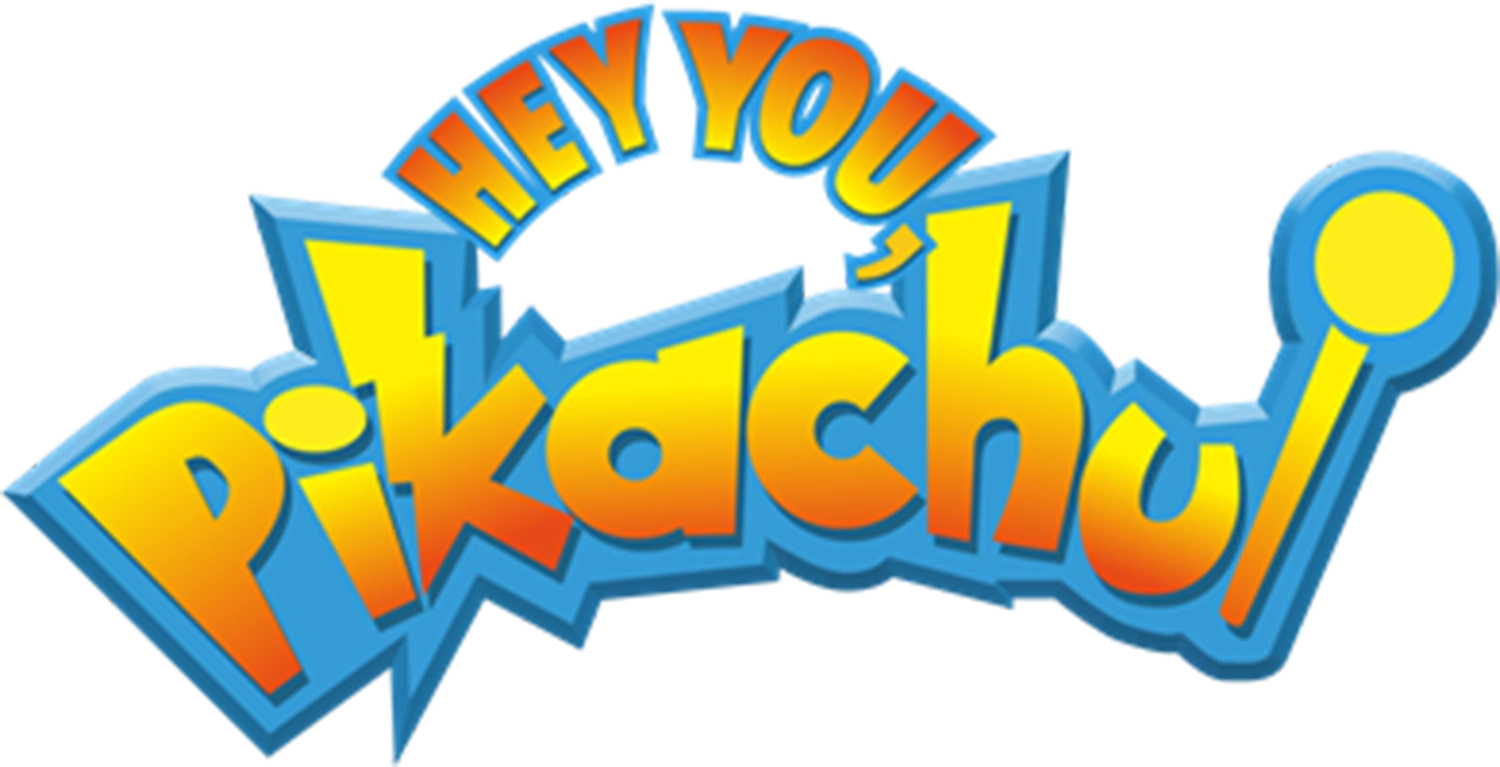 | |
| Developer(s) | Nintendo Creatures Ambrella Denyusha |
| Publisher(s) | Nintendo The Pokémon Company |
| Genre(s) | Pet simulator Television simulator Mini-game compilation Visual novel |
| Console/platform of origin | LCD Handheld |
| First installment | Pokémon Pikachu (1998) |
Pikachu is a series of spin-off games starring the Pokémon franchise mascot Pikachu, itself made up of the subseries Pokémon Pikachu, Detective Pikachu, PokéPark, and Hey You, Pikachu!, with some ambigious entries in the form of a single game starring Pichu and multiple special edition mainline Pokémon games with Pikachu in the place of a legendary or starter on the box.
Detective Pikachu appears as a Spirit in Ultimate. Partner Pikachu from Pokémon: Let's Go, Pikachu! also appears, though that game's placement in the Pikachu franchise is dubious.
Pokémon (anime)[edit]
Various references, mostly in trophies. (uncertain on elegiblity?)
Professor Hector[edit]
| Professor Hector (universe) | |
|---|---|
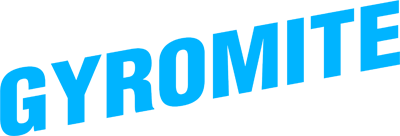 | |
| Developer(s) | Nintendo |
| Publisher(s) | Nintendo |
| Genre(s) | Puzzle Platformer Toy |
| Console/platform of origin | NES |
| First installment | Gyromite (1985) |
Professor Hector is a character featured in all games that support R.O.B., described as being the inventor of the robot in-universe.
The representation for the actual games that support R.O.B., as opposed to the physical hardware, is extremely scant, as R.O.B. is mostly treated as a Smash original character and some elements of the Professor Hector lore contradict the plotline of The Subspace Emissary. However, R.O.B.'s victory jingle is taken from Stack-Up, and a music track featuring songs from both Professor Hector games has been present since Brawl.
Pyoro[edit]
| Pyoro (universe) | |
|---|---|
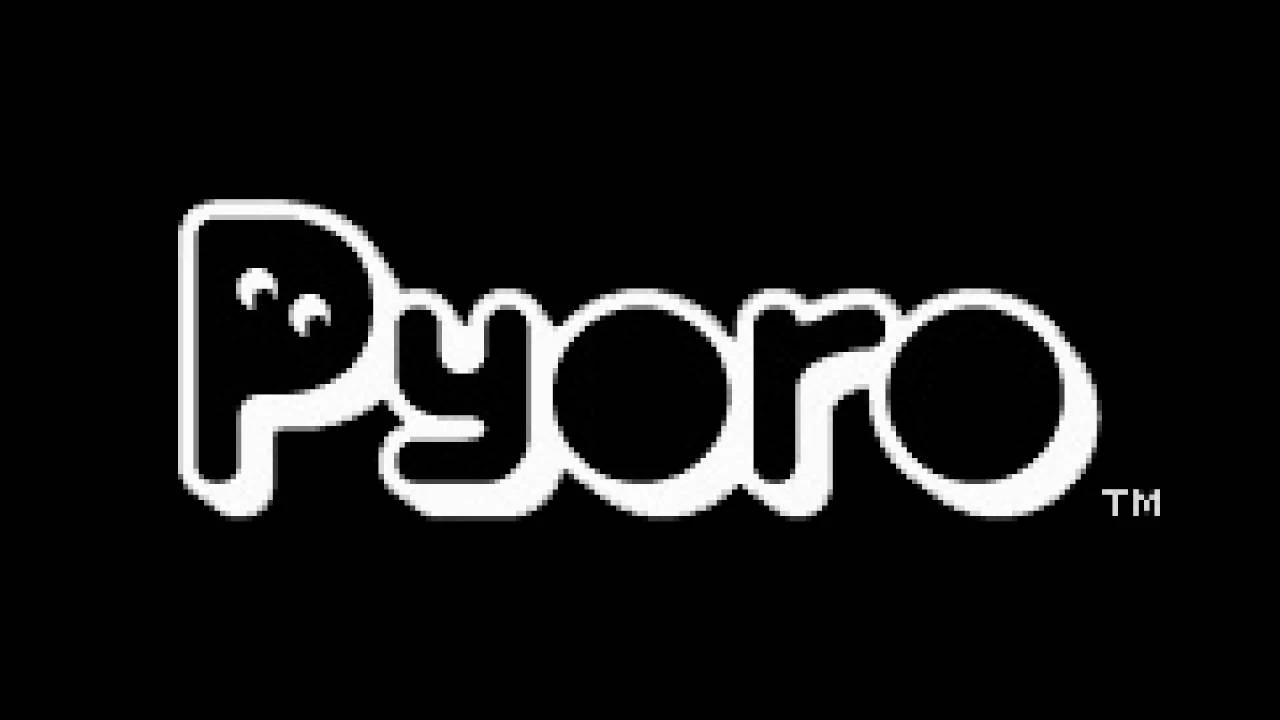 | |
| Developer(s) | Nintendo Intelligent Systems |
| Publisher(s) | Nintendo |
| Genre(s) | Arcade Shooter |
| Console/platform of origin | Game Boy Advance Nintendo DSi (first solo release) |
| First installment | Pyoro and Pyoro 2 (2003, as part of WarioWare, Inc: Mega Microgame$!; 2008, as an individual product) |
Pyoro is a fictional series of video games playable within the WarioWare series of games, starring and presumably developed by a long-tongued small red bird of the same name (a parody of the Japanese chocolate mascot Kyorochan) depicted as both Wario's greatest competitor and admirerer, with minigames from the character's gamography being playable in almost every WarioWare game. In 2008, the first two Pyoro games featured in Mega Microgame$! were released as an independent downloadable game for Nintendo DSi, under the title Bird & Beans in the US and retaining the Pyoro title elsewhere.
Pyoro's artwork as a Spirit in Ultimate is taken from Bird & Beans. Additionally, all other instances of Pyoro representation, such as in a cameo on Gamer, could be considered representation for the Pyoro series of games depending on how one views the franchise in relation to reality.
Stanley the Bugman[edit]
| Stanley the Bugman (universe) | |
|---|---|
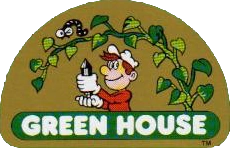 | |
| Developer(s) | Nintendo |
| Publisher(s) | Nintendo |
| Genre(s) | Shooting Arcade |
| Console/platform of origin | Game & Watch |
| First installment | Green House (1982) |
Stanley the Bugman is a character who has recieved starring roles within the continuities of both Donkey Kong and generic Game & Watch games.
Stanley has made multiple appearances in Smash, with Mr. Game & Watch's jab having been based on Green House for all of his appearances, and being reanimated in Ultimate to have him transform into Stanley (even when other Mario-related games did not recieve transformation animations). Stanley is also a trophy in Melee and Spirit in Ultimate, classified as Donkey Kong character both times.
Tingle[edit]
| Tingle (universe) | |
|---|---|
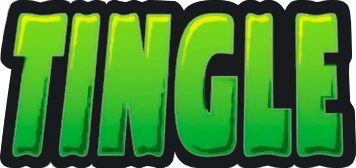 | |
| Developer(s) | Vanpool |
| Publisher(s) | Nintendo |
| Genre(s) | RPG Utility Platformer Point & click adventure Dating simulator |
| Console/platform of origin | Nintendo DS |
| First installment | Freshly-Picked Tingle's Rosy Rupeeland (2006) |
Tingle is a self-parodic spin-off of The Legend of Zelda starring the eccentric and perverse map maker Tingle, featuring a more twisted sense of humor and light satirical commentary on matters such as capitalism and slavery.
Tingle's trophy description in Brawl describes the plot of Freshly-Picked Tingle's Rosy Rupeeland, and Barkle; Pinkle; and Uncle Rupee are featured as stickers. Tingle's Assist Trophy animation features flowers, presumably in reference to the box art of Rosy Rupeeland which shows Tingle skipping through a meadow, which is retained into Smash 4. Zero content from the Tingle series appears in Ultimate however, with Tingle's reduced presence only taking from his Zelda appearances.
Wario Land[edit]
| Wario Land (universe) | |
|---|---|

| |
| Developer(s) | Nintendo Good-Feel Treasure Suzak TOSE |
| Publisher(s) | Nintendo |
| Genre(s) | Platformer Beat-em-up |
| Console/platform of origin | Game Boy |
| First installment | Wario Land: Super Mario Land 3 (1994) |
Wario Land is a series of platformers starring Mario's greedy, unkempt "dark" counterpart Wario on his adventures to acquire great fortune, often committing good deeds by complete accident along the way.
Wario Land only recieves very minor representation in Smash, with moves like the "shoulder bash" having been implemented in very minor forms, and a single Wario Land music track (Stonecarving City from Wario Land: Shake It!) being avaliable in Ultimate and for Wii U, with Wario's representation instead mostly taking from WarioWare and original concepts based on the idea of Wario being a slob, which originated in marketing for Wario Land but is not particularly present in the games themselves. Various Wario Land Spirits and stickers have been featured in Ultimate and Brawl respectively, and Ultimate classifies Wario's overalls outfit, also featured in Mario games, as being from Wario Land.
Smash would also directly influence Wario Land, as the Stonecarving City theme was based on Wario's victory theme.
Indirect[edit]
AKB48[edit]
Mii Fighter trailer
Assault[edit]
| Assault (universe) | |
|---|---|
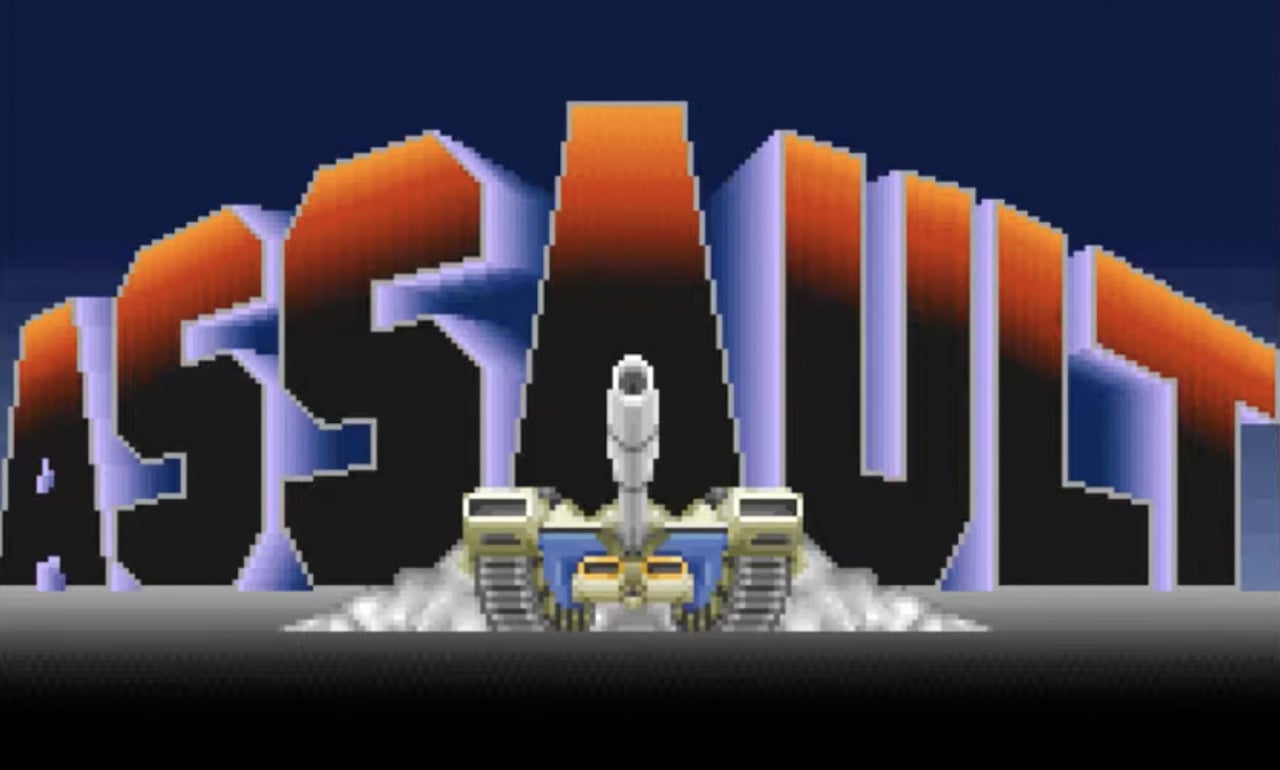 | |
| Developer(s) | Namco |
| Publisher(s) | Namco Atari |
| Genre(s) | Shooter |
| Console/platform of origin | Arcade |
| First installment | Assault (1988) |
Assault is a tank shooting game developed by Namco, featuring vehicle designs by Gundam artist Kunio Okawara.
Star Fox Assault, the origin and namesake of Orbital Gate Assault, while not related in any notable way to Assault, was only allowed to use the word "assault" in the title due to the game being developed by Namco, the owners of the "Assault" trademark for video games at the time.
Beatmania[edit]
Unused
Beauty and the Beast[edit]
Referenced in pic of the day. Original fairytale, not Disney
Blast Corps[edit]
-Unused
Bozo the Clown[edit]
Melee name tag
Blue Oyster Cult[edit]
Don't Fear the Reaper Reference
Conker[edit]
Name tag
Devil's Third[edit]
| Devil's Third (universe) | |
|---|---|
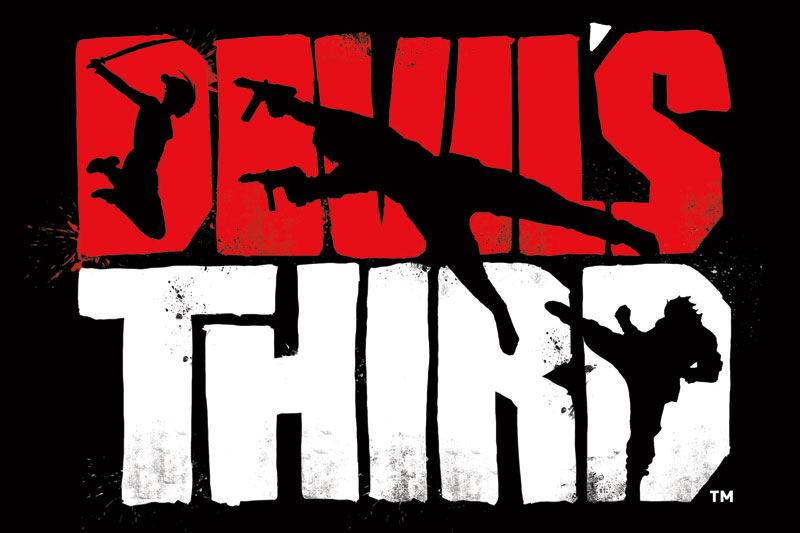 | |
| Developer(s) | Valhalla Game Studios Nintendo |
| Publisher(s) | Nintendo Nexon |
| Genre(s) | Shooter Hack and slash |
| Console/platform of origin | Wii U |
| First installment | Devil's Third (2015) |
Devil's Third is a third-person shooter with a heavy emphasis on online gameplay, revolving around an ex-terrorist named Ivan who is granted probation from Guantanamo Bay to fight his former alligance, the School of Democracy (SOD), only to discover a post-apocalyptic future of his group's creation. The game was never owned by Nintendo, but was initially published by it, and recieved very negative reception in Western shores, but was recieved very well by Japanese audiences.
Devil's Third has an unused Spirit identifier in the files of Ultimate.
Strange Case of Dr Jekyll and Mr Hyde[edit]
Melee name tags
Euphues: The Anatomy of Wit[edit]
All is Hair in Love and War spirit event
Godzilla[edit]
Referenced in Smash Cards
Guinness World Records[edit]
Pac-Man trophy description
Gundam[edit]
Samus alt costume
Halo[edit]
Karate Joe trophy description
Disney's Hercules[edit]
Sora presentation
Jet Force Gemini[edit]
-Unused
Joust[edit]
| Joust (universe) | |
|---|---|
 | |
| Developer(s) | Williams Electronics Tiger Electronics |
| Publisher(s) | Williams Electronics Midway Warner Bros. Games Atari Nintendo Tiger Electronics |
| Genre(s) | Platformer |
| Console/platform of origin | Arcade |
| First installment | Joust (1982) |
Joust is a classic arcade game series about knights fighting while piloting flying ostrich steeds.
Balloon Fight is heavily inspired by Joust, and some may argue it to be a clone or even bootleg. The Balloon Fight stage in particular has a very strong resemblance to the game.
Killer Instinct[edit]
Funky Kong theme song origin
Kuidaore[edit]
Pic of the day mention
Disney's The Little Mermaid[edit]
Sora presentation
Little Red Riding Hood[edit]
All the Better to Hear You With spirit event.
Lode Runner[edit]
The Matrix[edit]
DK results screen
Mega 64[edit]
Fils A Mech reference
M.U.S.C.L.E.[edit]
-Direct Mention
The Notebook Trilogy[edit]
Lucas and Claus' name origin
Oddity[edit]
| Oddity (universe) | |
|---|---|
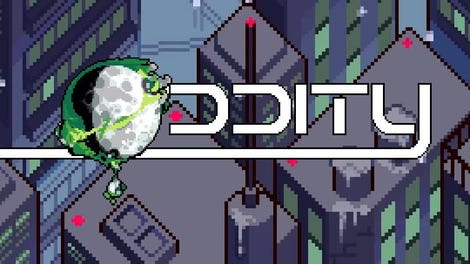 | |
| Developer(s) | Azure Studios |
| Publisher(s) | Unknown, possibly vaporware |
| Genre(s) | RPG |
| Console/platform of origin | Microsoft Windows |
| First installment | Oddity (currently unreleased, possibly vaporware) |
Oddity is an RPG taking place in a suburban setting, heavily inspired by EarthBound, it was originally intended as a fan game under the name Mother 4. The game has notably had a rocky development cycle, originally planed for Winter 2014, and gaining a strong enough following for its protagonist Travis to be featured in many general EarthBound and Smash fan works such as Smashified!, before being delayed indefinitely, to the point where the initial "Winter 2014" deadline has become an in-meme in EarthBound fandom circles
In the launch version of Ultimate, the Masked Man's Spirit used stolen fan art of the character in the art style of Mother 4. This was shortly patched out.
The Offspring[edit]
"Pretty Fly for a White Guy" reference in Fly Guy trophy
Disney's Peter Pan[edit]
| Disney's Peter Pan (universe) | |
|---|---|
 | |
| Developer(s) | Doki Denki Studios Crawfish Interactive Gorila Systems Blue 52 Games |
| Publisher(s) | Disney Interactive Sony Computer Entertainment |
| Genre(s) | Adventure Fantasy |
| Console/platform of origin | Movie PlayStation Microsoft Windows Game Boy Advance |
| First installment | Peter Pan (1953) Peter Pan: Adventures in Never Land (2002) (First video game) |
Disney's Peter Pan is a 1953 animated film adapted from the 1904 stage play Peter Pan; or, the Boy Who Wouldn't Grow Up, considered a defining entry in what is known by fans as the Disney animation studio's "Silver Age".
Sora's ability to fly, featured in his entrance animation and trailer, are achieved through Tinker Bell's Pixie Dust.
Pong[edit]
| Pong (universe) | |
|---|---|
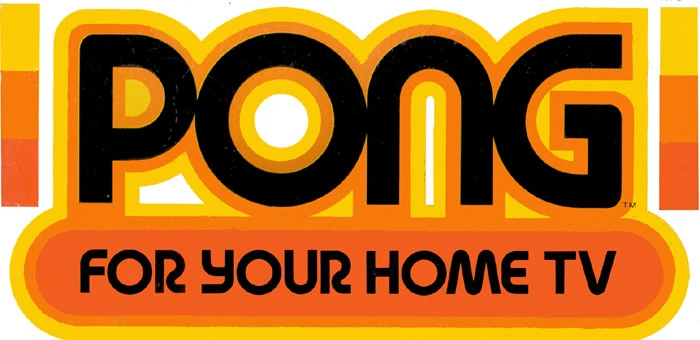 | |
| Developer(s) | Atari Morning Star Multimedia Supersonic Software zGames Chequered Ink |
| Publisher(s) | Atari Namco Kee Games Hasbro Interactive MacSoft |
| Genre(s) | Sports |
| Console/platform of origin | Arcade |
| First installment | Pong (1972) |
Pong is a greatly influential primitive tennis video game developed by Allan Alcorn. Believed to be the first video game to ever see mainstream commercial success outside of niche technology circles, it is often used as a general symbol for retro gaming in pop culture.
Color TV-Game 15 is one of many near-identical Pong clones that were popular in the 1970s, though Smash does stress the miniscule differences between it and its source material.
Portal[edit]
| Portal (universe) | |
|---|---|
 | |
| Developer(s) | Valve ClockStone |
| Publisher(s) | Valve Microsoft Game Studio HeadStone Games |
| Genre(s) | Puzzle Platformer |
| Console/platform of origin | Windows Xbox 360 PlayStation 3 |
| First installment | Portal, as part of The Orange Box (2007) Portal: Still Alive (2008, first standalone release) Set in the universe established by Half-Life (1998) |
Portal is a series of puzzle platformers set in the Valve shared universe, in which the player must navigate rooms by shooting portals into walls. Originally intended as a simple minigame to supplement 4 more extensive games in the compilation The Orange Box, it was regarded as the highlight of the compilation and spawned a franchise of its own.
Souflee's trophy description makes reference to a popular internet meme from the time that originated from the game - "the cake is a lie".
Puyo Puyo[edit]
| Puyo Puyo (universe) | |
|---|---|
 | |
| Developer(s) | Compile Sega Various |
| Publisher(s) | Compile Sega Various |
| Genre(s) | Puzzle RPG |
| Console/platform of origin | MSX (Madō Monogatari) MSX2 (Puyo Puyo) Famicom Disk System (Puyo Puyo) Sega Genesis (reskinned) |
| First installment | Madō Monogatari 1-2-3 (1990, Madō Monogatari) Puyo Puyo (1991, video games) Dr. Robotnik's Mean Bean Machine (1993, first reskin) |
Puyo Puyo is a series of matching puzzle games revolving around a lighthearted, mostly-female cast, itself a spin-off of the now-dormant Madō Monogatari. During the 1990s the series would see releases attached to popular characters and franchises, due to the low popularity of non-sexualised female protagonists and anime aesthetics in Western shores at the time, including Dr. Robotnik from The Adventures of Sonic the Hedgehog TV show, Kirby, and one instalment - Qwirks - that was given an endorsement by Tetris creator Alexey L. Pajitnov.
Meta Knight's shoes originate from Kirby's Avalanche.
Rad Mobile[edit]
Sonic debut
Rocky[edit]
Referenced in Smash Cards
Slender Man[edit]
| Slender Man (universe) | |
|---|---|
 | |
| Developer(s) | Parsec Productions Blue Isle Studios |
| Publisher(s) | Parsec Productions |
| Genre(s) | Horror |
| Console/platform of origin | Forum thread Microsoft Windows (video game) Mac (video game) |
| First installment | "Create paranormal images" (Something Awful forum thread, 2009) Slender: The Eight Pages (first video game, 2012) |
The Slender Man is a creepypasta character created by Eric Knudsen, depicted as a faceless, ominous figure that lures people into the woods. Despite becoming somewhat of a folkloric character, the Slender Man is a copyrighted property with a clear origin.
The Enderman is named after the Slender Man.
Space Invaders[edit]
| Space Invaders (universe) | |
|---|---|
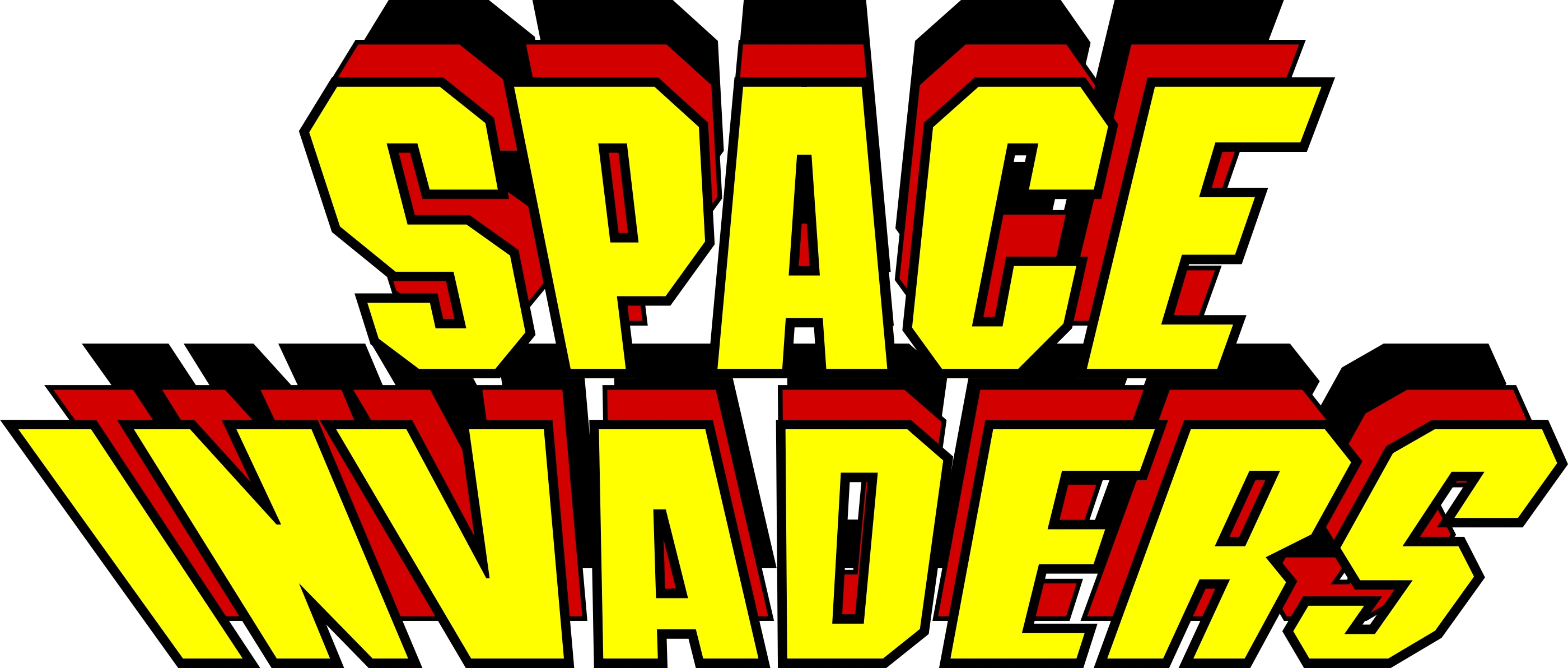 | |
| Developer(s) | Taito Atari Various |
| Publisher(s) | Taito Midway Atari Square Enix Various |
| Genre(s) | Shooter |
| Console/platform of origin | Arcade |
| First installment | Space Invaders (1978) |
Space Invaders is a highly influential video game in which the player must shoot down rows of crustacean-themed aliens, its influence is widespread as one of the first games to feature identifiable characters, as well as originating both increasing difficulty and the concept of "bugs as features" through a beneficial glitch relating to game speed. Many influential game developers, especially from Japan and including Masahiro Sakurai, cite Space Invaders as their influence for persuing gaming as a career. The "crab" alien design, or a close facsimile of it, is often used as a general symbol in pop culture to represent video games, older video games, or even the very concept of extraterrestrial life.
Space Invaders is name dropped in a Smash 4 pic of the day, providing reference for the age of Color TV-Game 15.
Star Wars[edit]
Beam Sword 64, pic of the day mention
Studiopolis[edit]
| Studiopolis (universe) | |
|---|---|
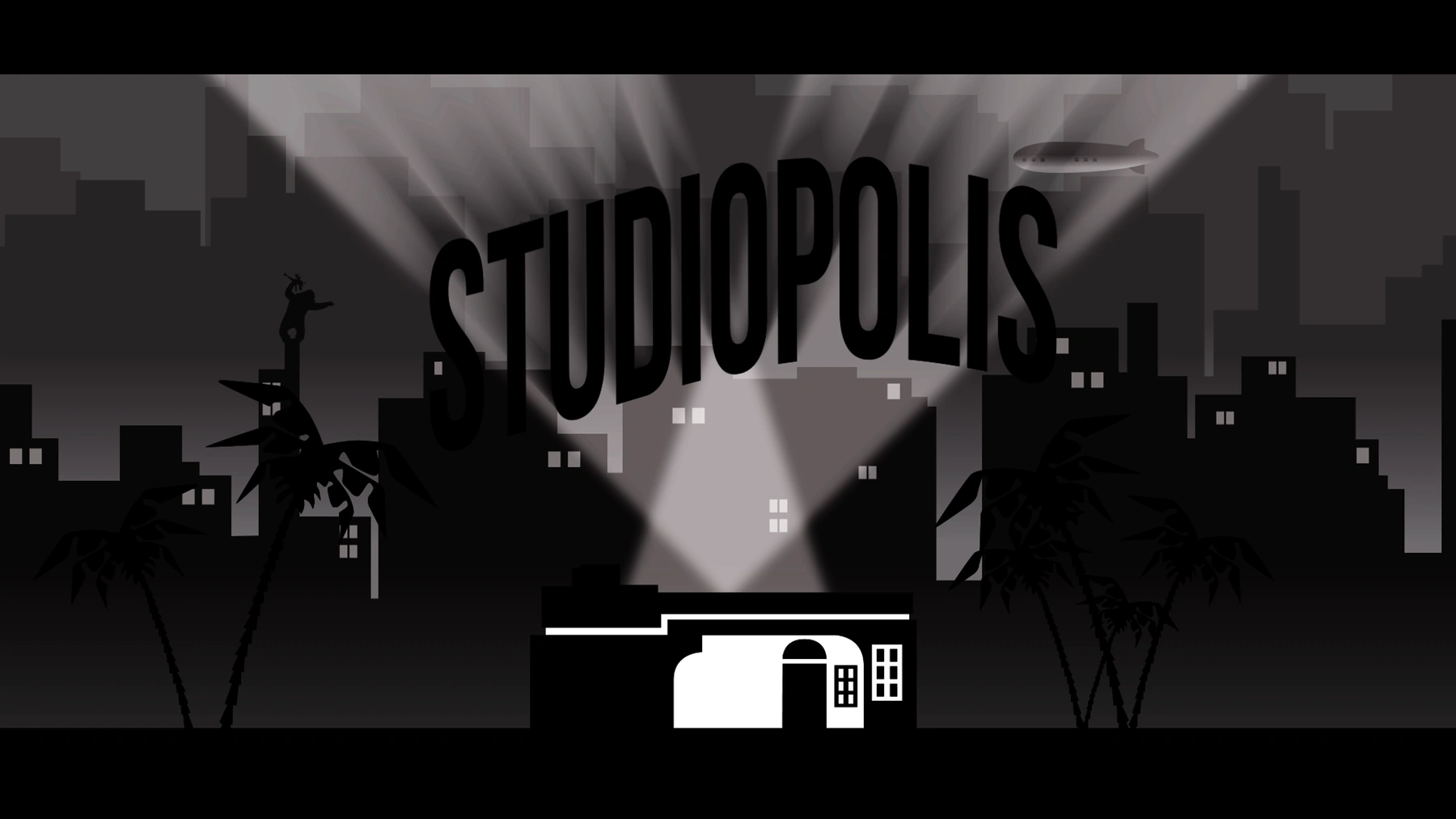 | |
| Console/platform of origin | TV PlayStation 2 (gaming) |
| First installment | Sailor Moon (1995) Final Fantasy X (2001, first video game dub) |
Studiopolis is an American post-production company specialising in dubbing for cartoons, anime, and video games, including the Sonic the Hedgehog franchise.
A zone in Sonic Mania coincidentally shares a name with Studiopolis, which was approved by the studio once the connection was discovered during development. The name is included in the name of the song "Lights, Camera, Action! (Studiopolis Zone Act 1)"
Superman[edit]
Lurchthorn trophy description
Toy Story[edit]
| Toy Story (universe) | |
|---|---|
 | |
| Developer(s) | Pixar Interactive Products Group Various |
| Publisher(s) | Disney Interactive Various |
| Genre(s) | Fantasy Adventure Comedy Sci-fi |
| Console/platform of origin | Movie SNES (video game) Sega Genesis (video game) Game Boy (video game) Microsoft Windows (video game) |
| First installment | Toy Story (1995) Toy Story (1995, video games) |
Toy Story is an ongoing series of animated films, a pioneering franchise for feature-length CGI animation and the Pixar animation studio, revolving around the adventures of toys and other playthings when humans aren't looking. The series is renowned for having emotional and philosophical depth while still maintaining an energetic and adventerous tone.
Footage from the Toy Box world of Kingdom Hearts 3, featuring Woody and Buzz, can be seen in Sora's presentation
The Turtles[edit]
Happy Together song
Frisbee[edit]
Frisbee dog trophy
Game of Death[edit]
Bayonetta alt
Disney's Winnie the Pooh[edit]
| Disney's Winnie the Pooh (universe) | |
|---|---|
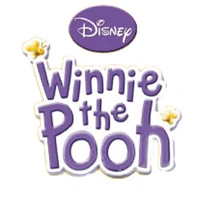 | |
| Developer(s) | Various |
| Publisher(s) | Disney Interactive Various |
| Genre(s) | Slice of life Early learning |
| Console/platform of origin | Movie Commodore 64 (video game) |
| First installment | Winnie the Pooh and the Honey Tree (1966) Winnie the Pooh in the Hundred Acre Wood (1984, video games) |
Disney's Winnie the Pooh refers to a series of films and television series created by The Walt Disney Company based on the Winnie-the-Pooh books by A.A. Milne. Typically replicating the relaxing nature of the books, the Pooh films target an even younger audience than Disney Animation's traditionally child-friendly output.
Footage from the 100-Acre Wood world in Kingdom Hearts 3, featuring various Pooh characters, including the Disney original creations Lumpy and Gopher, can be seen in Sora's presentation.
All of the above[edit]
99[edit]
| 99 (universe) | |
|---|---|
 | |
| Developer(s) | Arika Nintendo |
| Publisher(s) | Nintendo Bandai Namco |
| Genre(s) | Battle royale Racing Platformer Maze Puzzle |
| Console/platform of origin | Nintendo Switch |
| First installment | Tetris 99 (2019) |
99, also known as 35, refers to a series of Nintendo Switch Online-exclusive titles reimagining classic video games such as Super Mario Bros., Tetris, F-Zero, and Pac-Man in a modern battle royale format.
All of the Tetrimino Spirits in Ultimate use artwork from Tetris 99.
Diddy Kong Racing[edit]
| Diddy Kong Racing (universe) | |
|---|---|
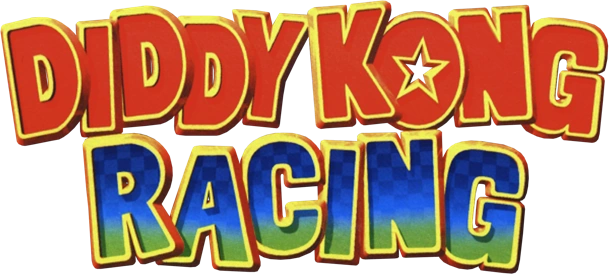 | |
| Developer(s) | Rare |
| Publisher(s) | Rare Nintendo |
| Genre(s) | Racing |
| Console/platform of origin | Nintendo 64 |
| First installment | Diddy Kong Racing (1997) |
Diddy Kong Racing, known in modern merchandising as Rare Racers, is a racing game featuring Diddy Kong alongside a cast of original animal characters. The game is notable for introducing the world to Banjo of Banjo-Kazooie and Conker of Conker's Bad Fur Day as as a promotional stunt (albeit one that would quickly become poorly aged as Conker developed into an adult character in later games)
Diddy Kong's Trophy description in Brawl makes a vague reference to Diddy participating in races, which could be interpreted as a reference to either Mario Kart, Donkey Kong: Barrel Blast, or Diddy Kong Racing. Diddy Kong Racing has an unused Spirit identifier in the files of Ultimate, likely scrapped due to the series' well-known legal woes.
Disney's Ducks[edit]
| Disney's Ducks (universe) | |
|---|---|
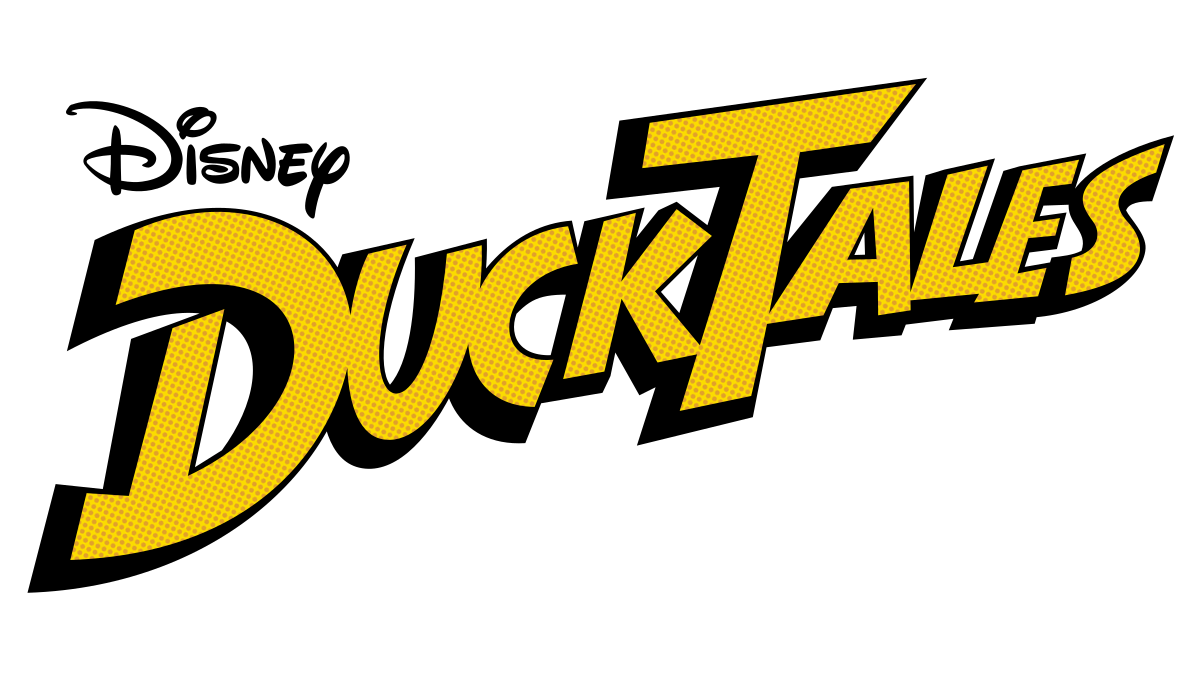 | |
| Developer(s) | Disney Interactive Capcom WayForward Various |
| Publisher(s) | Disney Interactive Capcom Various |
| Genre(s) | Adventure Comedy |
| Console/platform of origin | Movie Atari 2600 (video game) Commodore 64 (released video game) |
| First installment | Don Donald (1937) Donald Duck's Speedboat (first video game, unreleased) Donald Duck's Playground (first released video game, 1984) |
Disney's Ducks is a sub-series of the Mickey Mouse universe revolving around various ducks going on adventures, typically in the town of Duckburg. In some territories, the franchise is more popular than Mickey Mouse. It itself comprises multiple sub-series, Donald Duck being the most iconic character; the Uncle Scrooge being a popular meta-spin-off; most famous through the television series DuckTales; and a slightly lesser known branch coming in the form of the superhero parody cartoon series Darkwing Duck.
Sora's Wisdom Form, featured as an alternate costume in Ultimate, is accessed by fusing with Donald Duck, technically making Donald a playable character. The game Mickey & Donald is namedropped in the Chronicle. Donald Duck can be seen on-screen in Kingdom Hearts game footage in the "Battling with Sora" presentation
Game & Watch Gallery[edit]
| Game & Watch Gallery (universe) | |
|---|---|
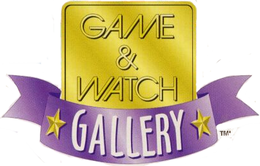 | |
| Developer(s) | Nintendo TOSE Million Colors |
| Publisher(s) | Nintendo |
| Genre(s) | Minigame compilation |
| Console/platform of origin | Game Boy |
| First installment | Game Boy Gallery (1995) |
Game & Watch Gallery is a compilation series featuring classic Game & Watch games in faithful remakes and special remakes starring Mario and Yoshi characters.
The theme to Flat Zone 2 is misattributed as originating from Game & Watch Gallery in Brawl, despite being an original composition. Peach's frying pan, while most likely a reference to Super Mario RPG, may originate from Modern Chef.
Goofy[edit]
| Goofy (universe) | |
|---|---|
 | |
| Developer(s) | Disney Interactive Krome Studios Capcom The Code Monkeys Absolute Entertainment |
| Publisher(s) | Disney Interactive Capcom NewKidCo Ubisoft Absolute Entertainment |
| Genre(s) | Comedy |
| Console/platform of origin | Movie (debut) Atari 5200 (video game) SNES (released game) |
| First installment | Goofy and Wilbur (1939) Sport Goofy (first video game, unreleased) Goof Troop (first released video game, 1993) |
Goofy, sometimes known as George Geef, is a popular Disney cartoon character, typically depicted as a well-meaning halfwit and the out-of-touch single father to his teenage son Max. Goofy is most famous for the How To short series, animated parodies of instructional videos in which Goofy fails to follow the provided instructions, leading to mild cartoon slapstick.
Sora's Valor Form, featured as an alternate costume in Ultimate, is accessed by fusing with Goofy, technically making Goofy a playable character. Goofy can be seen on-screen in Kingdom Hearts game footage in the "Battling with Sora" presentation
Google Search[edit]
| Google Search (universe) | |
|---|---|

| |
| Developer(s) | Alphabet Various (doodles) |
| Publisher(s) | Stanford University Alphabet |
| Genre(s) | Utility Various (doodles) |
| Console/platform of origin | Web browser Wii (video game) |
| First installment | google.stanford.edu (1998) And-Kensaku (2010, first video game) Pac-Man (2010, first interactive doodle) |
Google Search is a search engine website. It is ubiquitous to the point of having become a genericised trademark. Although not a video game, Google has become very well known for its "Google Doodles", alternate logos released to mark certain occasions, some of which function as minigames.
Ando-Kensaku from And-Kensaku, a game themed around Google searches, is featured as a Spirit in Ultimate
Jonny Blastoff and the Kremling Armada[edit]
| Jonny Blastoff and the Kremling Armada (universe) | |
|---|---|
| Developer(s) | Rare |
| Publisher(s) | Unmade and unreleased |
| Genre(s) | Point & click adventure |
| Console/platform of origin | Macintosh PC |
Jonny Blastoff and the Kremling Armada was an unmade point-and-click adventure game.
The Kremling species from the Donkey Kong series, notably represented in Smash with the enemy Kritter, Assist Trophy and stage hazard Klaptrap, and fighter King K. Rool, among some trophies and spirits, originated from concepts for this game.
Mario & Sonic at the Olympic Games[edit]
| Mario & Sonic at the Olympic Games (universe) | |
|---|---|
 | |
| Developer(s) | Sega Various |
| Publisher(s) | Sega |
| Genre(s) | Sports Minigame compilation |
| Console/platform of origin | Wii DS |
| First installment | Mario & Sonic at the Olympic Games (2007) |
Mario & Sonic at the Olympic Games is a series of crossover sports games starring characters from the Mario and Sonic the Hedgehog franchises as they compete in the Olympic Games. Mario & Sonic itself has its own sub-series, Sonic at the Olympic Games, which removes all Mario content for release on devices not supported by Nintendo.
Silver's spirit art originates from the 2010 Mario & Sonic at the Olympic Winter Games, while Dry Bowser's is a Mario Kart Wii render that was first seen without his associated kart in the same game. Various Sonic voice lines also originate from other Mario & Sonic games.
Metal Gear Rising[edit]
Raiden's spirit art origin.
Pokémon Stadium[edit]
| Pokémon Stadium (universe) | |
|---|---|
 | |
| Developer(s) | Nintendo Genius Sonority |
| Publisher(s) | Nintendo |
| Genre(s) | Turn-based battle Minigame compilation RPG |
| Console/platform of origin | Nintendo 64 |
| First installment | Pocket Monsters Stadium (1998) |
Pokémon Stadium is a spin-off of the Pokémon franchise based around simulating battles on home consoles by transferring Pokémon from handheld mainline games. GameCube installments in the sub-series had their own RPG modes targeting an older audience.
The Pokémon Stadium stages are named after this series, but do not feature any elements from the games. All of the models in Poké Floats are ripped from Stadium, and many of the Pokémon trophies in Brawl are ripped from Battle Revolution.
Pokémon Trading Card Game[edit]
Beta Pokemon Stadium (uncertain on elegiblity?)
Weegee[edit]
| Weegee (universe) | |
|---|---|
 | |
| Console/platform of origin | MS-DOS |
| First installment | "Luigi looks like such a retard in this game" (End of the Universe forums thread, 2007) based on a sprite from Mario is Missing! (MS-DOS version, 1993) |
Weegee is a fan-made meme and creepypasta character based on a crudely drawn sprite of Luigi used in the MS-DOS version of Mario is Missing!, depicted as either an eldritch or perverse character with an unblinking stare that, much like Medusa, can transform all who make eye contact into a clone of Weegee.
Luigi's Smash 4 trophy descriptions refer to his quirky taunts as "100% Weegee". While the name Luigi had been said without "Lu-" in spoken word before Smash 4 (particularly in the Mario & Luigi series), Smash 4 marks the canonising of the spelling "Weegee" for said nickname.
Extremely likely to be a coincidence[edit]
The following universes are ones that may have been referenced in text contexts, but are extremely unlikely to be anything more than a coincidence and have very rational explanations to the contrary. Note that some references above may also be coincidences, but have significantly more likely links.
- Bubble Bobble is a classic 80s platformer series about two brothers transformed into dragons, who possess the ability to trap enemies in spit bubbles and must return home, rescue their girlfriends and parents, and transform back into humans. One of the name tags in Melee is "BUB", the protagonist of this series and also a common slang for "friend" in some territories.
- Initial D is a Japanese seinen manga revolving around illegal drag races in mountainous areas. The Hailing from the '90s tournament is known as "Fighting in the Ninties" in Europe, a possible reference to a "Running in the 90s", a popular song from the series that is the subject of an internet meme, though the "90s" in the original context refers to the speed of the cars as opposed to the decade
- Krypto the Super Dog is a character from DC Comics, depicted as the pet dog of Superman, with his level of anthropomorphism varying between iterations. The Ultimate name tag "SUPERDOG" may be a reference to this character.
- The Notorious B.I.G., also known as Biggie Smalls was an American gangster rapper, often regarded as one of the greatest rappers ever. "POPPA", another nickname used by Biggie and featured in one of his debut songs, is a name tag in Ultimate, though this is also a generic slang term for a father in some territories.
- PaRappa the Rapper is a pioneering rhythm game series revolving around a young dog who aspires to impress his crush, Sunny Funny the flower, by passing various adulthood milestones through rap music. The spirit event Step on the Gas! may be a reference to a line in the Car Rap.
- South Park is an adult animated series that tackles topical events in a darkly comedic, politically-incorrect manner through the eyes of a cast of bratty, foul-mouthed children in a snowy American town. One of Toon Link's tips in Smash 4 states that "if you try to dunk someone with it, you're gonna have a bad time", a possible reference to a meme from the series in which a ski instructor states "You're gonna have a bad time".
- Willy Wonka and the Chocolate Factory is a film adaptation of the Roald Dahl children's book Charlie and the Chocolate Factory, about a group of children who win a ticket to a chocolate factory, but are injured one-by-one in a cartoonish fashion. One of the name tags in Ultimate is "CANDYMAN", a possible reference to a song from the film.